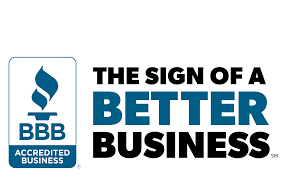Surviving Community Association Budget Season
June 19, 2020

In community association management, no two words are feared quite as much as ‘Budget Season’. 
Developing budgets is an important part of any business, and for community associations, the budget is incredibly important due to the fact that communities have a fixed potential income, and need to be prepared in advance for major expenditures like equipment failure or natural disasters.
Why is budget season so feared?
Several reasons:
- Budgets are complicated
No matter how experienced you are and how much prior year data you have access to, there is always going to be information you don’t know that you need to hunt down. - Budgets take time
Especially for portfolio managers, who need to prepare a number of budgets at the same time, because every community must have their Annual General Meeting in the same week. - It’s Not YOUR Budget
Ultimately, the budget is the Board’s responsibility. It’s their budget, and they are the ones that need to make all of the hard decisions, since they are ultimately the ones responsible to present the final draft to the homeowners for approval.This can be hard for the Community Association Manager, since you have to run every adjustment or budgetary decision through the Board first. (This also contributes to the time-consuming aspect of budgeting.) - Budgeting Tools are simplistic
Most budgets begin with a blank Excel spreadsheet. If you’re lucky, you have a prior year spreadsheet to work from, or a software tool that makes it easier, such as the budgeting tools in TOPS. However, even then, you’re going to be doing a lot of legwork on your own to get the draft budget ready to present to the board.
Educated Guessing
The community association’s budget has one primary (and vitally important) goal. The budget helps the board find the perfect amount to set assessments where homeowners do not feel over-charged, but all expenses, large scale repairs and community-wide emergencies are prepared for financially.

In order to find that perfect amount to charge in homeowner assessments,
the budget must be able to accurately predict three things: Income (Revenue), Expenses (Operating), and Reserves (Saving and Spending).
Income (Revenue)
Of the three sections of the budget, the Income is perhaps the least important for a community association. Not because income isn’t important (you wouldn’t be able to pay bills with no income!) but because there is generally very little income a community association makes outside of Homeowner Assessments.
Because assessments are extremely predictable, (you collect x amount per home and there are x number of homes in the community) the biggest challenge you have when it comes to income is determining what to charge for homeowner assessments for the year. Remember, that is the primary
goal for the budget in the first place, so income will generally be one of the last things you do when calculating your budget.
Expenses (Operating Budget)
One of the trickiest parts of budgeting is predicting your operating expenses. Expense budgets in corporations are often little more than educated guesses of what each area of the organization will need to spend in the coming year, and if they get it wrong it’s not the end of the world.
Community Associations do not have the luxury of large variances. If the money isn’t in the budget, then you only have a couple of unsavory options – borrowing money, pulling from reserves (borrowing from your future) or a special assessment (billing the homeowners).
There are two primary ways the operating budget (expenses) for a community association can be calculated:
- Historic Trend – In a Historic trend budget, you use the prior year’s actual expenditures as a baseline, and add a percentage increase for inflation to all accounts.Historic Trend budgeting is the most common, and the easiest, although it is not necessarily the most accurate method.
- Zero-Based – In a zero-based budget, you start every line item at zero and justify the amount for everything that goes into the budget. While more accurate, going over every single line item can be quite time consuming.As a general rule, a Zero-Based budget is good to do when the community is new, or if you have recently taken over management. If there was even a sniff of mismanagement or fraud associated with prior years and you cannot depend on the history being accurate, you’ll have no choice but to start from zero.
- Hybrid Method (Recommended) – For most communities in your portfolio, you will likely wind up doing a combination of Historical and Zero-Based budgeting, where you start with the prior actuals for most line items on the chart of accounts, and use a zero-base model for the individual accounts you know will need to be changed next year.An example of this hybrid model would be if you recently renegotiated a major service contract like landscaping. The historic numbers for the landscaping account in the community’s chart of accounts are invalidated because you have a completely different vendor now, so that one account you would reset to zero and calculate out the budgetary requirements for the year from scratch.
Reserves
Perhaps one of the most important portions of the community association budget is the Reserve Fund.
The reserve portion of the budget covers the amount of money your community needs to save throughout the year to meet your target funding percentage.
The amount of money that the community needs to have in savings in order to be 100% or ‘Fully Funded’ is based on your community’s most recent Reserve Study. The reserve study predicts the lifetime of all of the major equipment and building elements in the community to determine when they will need to be repaired or replaced.
Armed with this prediction, the board has an amount of money they need to save in order to insure the maintenance and upkeep of the community is kept in continuity.
Under funding reserves is one of the biggest reasons communities have to levy a special assessment on the homeowners. No owner likes receiving a huge bill to pay to repair or replace something that should have been accounted for in the past —That’s a good way to lose seats on the board!






Leave a Reply